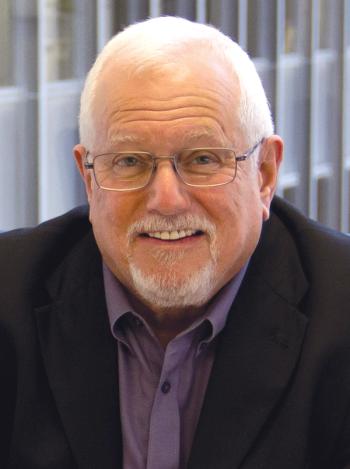
The European pharmaceutical industry is changing its approach to R&D and is increasingly relying on outsourcing for drug discovery, writes Faiz Kermani.

The European pharmaceutical industry is changing its approach to R&D and is increasingly relying on outsourcing for drug discovery, writes Faiz Kermani.

Cuts in healthcare costs due to post-recession austerity programs mean favorable Health Technology Assessments (HTAs) are becoming crucial to the successful market launch of pharmaceuticals in Europe.

It is nowadays fashionable to question everyone in authority, and there is no shortage of self-appointed watchdogs who aim to make sure that things that happen are happening as they should.

It is tempting to imagine the use of the patient’s own mobile computing platform for collection of patient reported outcomes.

The initial proposals for Value Based Pricing (VBP) in the UK have evolved into something very different. There is now a focus on Value Based Assessment (VBA).

To believe the European Parliament, the battle to create new clinical trials rules for the European Union is over.

With SMEs gaining wider recognition as the powerhouse of research and innovation in Europe, regulatory agencies are urging companies to engage with regulators early in the drug-development process, writes Sean Milmo.

The headlines have moved on for the English Cancer Drugs Fund (CDF). Replacing the positive press releases such as “thousands of patients to benefit” in 2013 are headlines shouting out that “thousands face being denied life-extending medication”.

By using digital signatures to eliminate paper from signature approval processes, pharmaceutical companies are achieving automated processes that are efficient and cost-effective without compromising security or compliance.

It is not only the specific issue of clinical trials rules that hangs in the balance as Europe shifts from 2013 to 2014.

Ten days in and the New Year already seems old. Yet members of our Pharm Exec Editorial Advisory Board are still eager to share their top of line predictions on trends that will shape the industry’s business and reputational assets.

Eli Lilly forecasts that its profit will fall by up to one-third this year, Reuters has reported. The drugmaker’s forecasted revenue for 2014 is now between $19.2 billion and $19.8 billion, with a net income of $3 billion and operating cash flow of $4 billion.

For more than fifty years the basic European Union rules about medicines have been clear.

Although a broad compromise was reached in late December on the future shape of the European Union’s clinical trials rules, there are still many details to be resolved – including on that perennial issue of data transparency.

Amid the environment of a gradual economic recovery and continued consolidation of bio/pharmaceutical companies, scientists, technicians, and professionals involved in drug development expressed a mix of muted optimism and stagnant employment options.

GlaxoSmithKline (GSK) will invest £200 million ($327 million) to expand its manufacturing facilities in Ware, Hertfordshire and Worthing, Sussex in the United Kingdom and establish a new manufacturing innovation facility.

Collaboration seems to be ‘in’ thing and it’s set to continue in Europe with the European Medicines Agency (EMA) and EUnetHTA agreeing a three-year joint work plan.

The European Commission mandated that all member states have a plan for rare diseases back in June 2009. With the EC deadline just weeks away, the UK has now finalized its own.

So, we’ve experienced two months of Obamacare. How is the U.S. pharmaceutical industry doing with this new program? I spent two weeks getting the opinions of several Rx representatives on their experience with Obamacare, as well as their thoughts on how it is impacting their marketing, sales, and R&D planning for 2014 and beyond.

The pharmaceutical sector needs to shape up to deal with the big uptake in bribery and corruption enforcement actions - and not just in the USA, write Toby Duthie and David Lawler.

High prices, murky financial relations, and a reluctance to disclose clinical data are undermining public trust in industry and the research enterprise, writes Jill Wechsler.

The report analyzed data from several biopharmaceutical and medical device clinical trials, and emphasized several observations

At the end of this month, the European Medicines Agency will close the consultation on its draft policy on Publication and access to clinical-trial data. The aim of the policy is laudable: to open up as much information as possible into the public domain with the aim of stimulating new avenues of research.

We are now less than three weeks away from the initial sign up period for Obamacare. After October 1st, the reality of the program and all that it portends for the future of the US pharmaceutical industry will begin to make itself apparent

Since the Omnicom-Publicis merger was announced in late July, it appears the only sources that have not commented on the joining of the superpowers are the President, the Pope, and WikiLeaks.

Go to any communications seminar, forum, convention or workshop right now and the program will be populated with the latest and greatest trends in social communication platforms and how important these are if you want to be successful

What does it take for internal Promotional Review Committees to function at their best and avoid costly mistakes to the company? A leading industry practitioner offers 15 tips for high performing teams.

As many of you may recall, earlier this year I commented on a section of the new Obamacare law that directed Members of Congress and their staffs to participate in the new healthcare program, effective January 1, 2014.

The value of retrospective studies cannot be overstated. Retrospective studies affect many healthcare sectors, including the pharmaceutical industry and general public health

Pharm Exec’s sister organization CBI hosted its annual Orphan Drug Innovation Summit in Philadelphia on July 17-18. This is a topic that I have professional interest in, as well as a general curiosity.